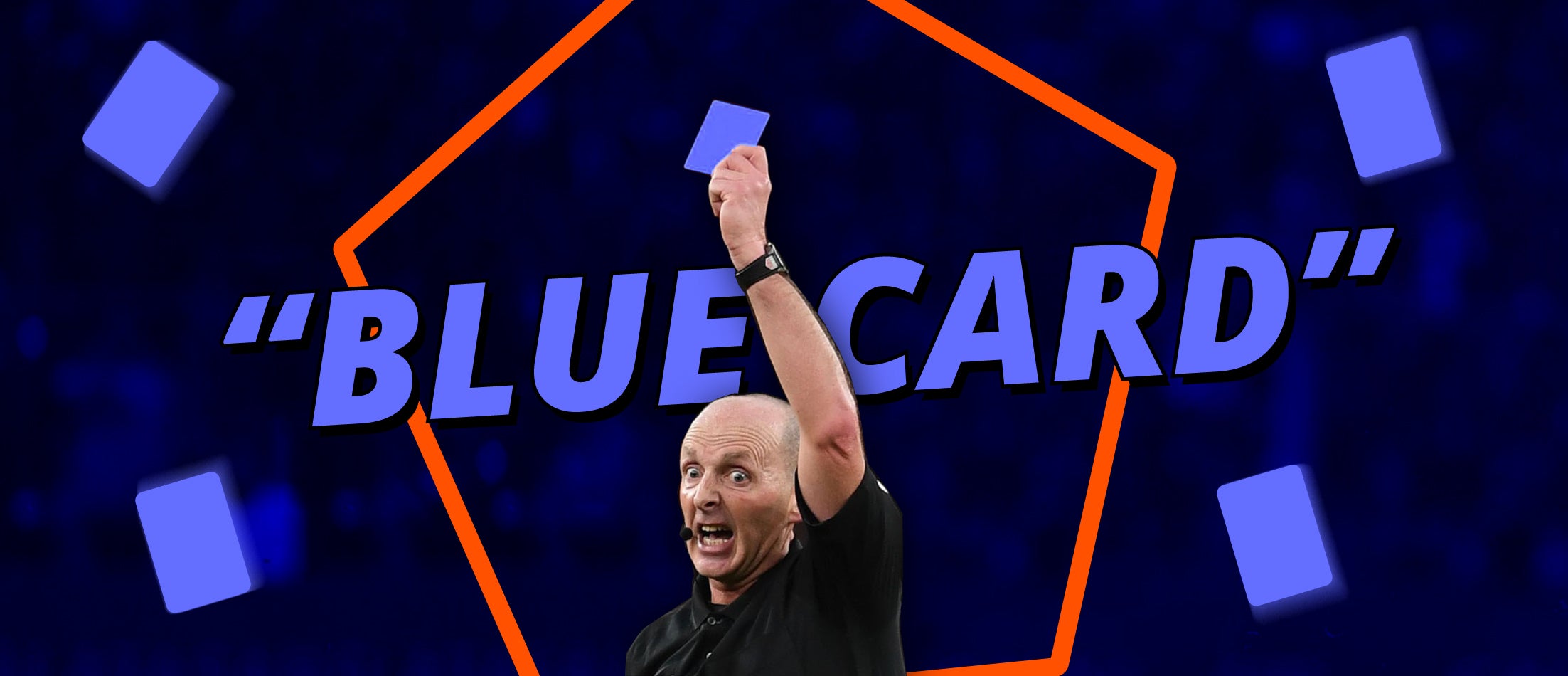Football, deeply entrenched in tradition, occasionally flirts with innovation. One such rumoured innovation was the introduction of the enigmatic "Blue Card." While the yellow and red cards are well-known symbols of caution and expulsion, the blue card whispered of a new era in football officiating. However, recent developments have debunked these rumours, as FIFA President Gianni Infantino definitively ruled out the implementation of blue cards at elite levels of the sport.
Origins of the Blue Card:
Rumours surrounding the blue card have circulated within the football community, sparking curiosity and debate. Some speculated it emerged from discussions on enhancing player safety and fair play, while others saw it as a response to the growing concern over simulation and diving.
Speculations and Interpretations:
Speculation ran rampant regarding the blue card's purpose and implementation, with some suggesting the introduction of a sin bin concept borrowed from other sports like rugby. This would see offending players temporarily removed from the field of play, adding a new layer of disciplinary enforcement and strategic considerations for teams.
However, recent statements from FIFA president Giovanni Infantino have put an end to these speculations. He made it clear that the blue card idea has been scrapped, reaffirming FIFA's opposition to its introduction at elite levels of the game. Additionally, it was emphasized that the blue card will not apply to goalkeepers, further delineating its role in the sport.
Potential Impacts on the Game:
While the blue card will not materialize, the sin bin concept remains under trial at lower-level and youth games. This disciplinary measure aims to improve player behaviour and enhance the officiating of Football matches. It offers a nuanced approach to discipline and introduces strategic considerations for teams, albeit without the introduction of the blue card itself.
Challenges and Controversies:
The rejection of the blue card highlights the challenges associated with implementing significant changes in football officiating. While innovations like sin bins are being trialled, consistent enforcement and clear guidelines are essential to prevent confusion and backlash from players, coaches, and fans. Additionally, concerns about the impact on the flow of the game and potential subjective interpretations of fouls remain valid considerations.
The rejection of the blue card marks a significant development in football officiating. While the idea may have been intriguing, FIFA's decisive stance reflects a commitment to preserving the integrity of the sport while exploring measures to improve player behaviour. As soccer continues to evolve, it draws inspiration from other sports but remains rooted in its traditions, demonstrating a willingness to embrace change in pursuit of improvement.
Origins of the Blue Card:
Rumours surrounding the blue card have circulated within the football community, sparking curiosity and debate. Some speculated it emerged from discussions on enhancing player safety and fair play, while others saw it as a response to the growing concern over simulation and diving.
Speculations and Interpretations:
Speculation ran rampant regarding the blue card's purpose and implementation, with some suggesting the introduction of a sin bin concept borrowed from other sports like rugby. This would see offending players temporarily removed from the field of play, adding a new layer of disciplinary enforcement and strategic considerations for teams.
However, recent statements from FIFA president Giovanni Infantino have put an end to these speculations. He made it clear that the blue card idea has been scrapped, reaffirming FIFA's opposition to its introduction at elite levels of the game. Additionally, it was emphasized that the blue card will not apply to goalkeepers, further delineating its role in the sport.
Potential Impacts on the Game:
While the blue card will not materialize, the sin bin concept remains under trial at lower-level and youth games. This disciplinary measure aims to improve player behaviour and enhance the officiating of Football matches. It offers a nuanced approach to discipline and introduces strategic considerations for teams, albeit without the introduction of the blue card itself.
Challenges and Controversies:
The rejection of the blue card highlights the challenges associated with implementing significant changes in football officiating. While innovations like sin bins are being trialled, consistent enforcement and clear guidelines are essential to prevent confusion and backlash from players, coaches, and fans. Additionally, concerns about the impact on the flow of the game and potential subjective interpretations of fouls remain valid considerations.
The rejection of the blue card marks a significant development in football officiating. While the idea may have been intriguing, FIFA's decisive stance reflects a commitment to preserving the integrity of the sport while exploring measures to improve player behaviour. As soccer continues to evolve, it draws inspiration from other sports but remains rooted in its traditions, demonstrating a willingness to embrace change in pursuit of improvement.














